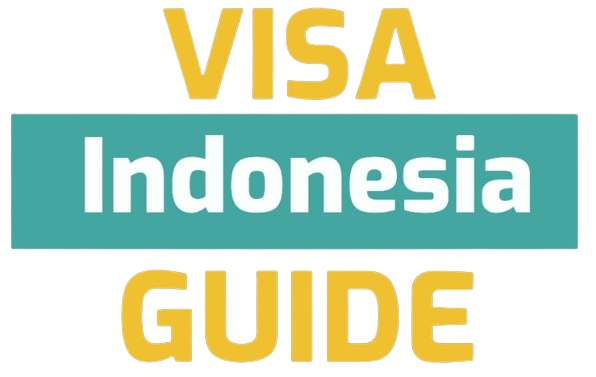Unlock Indonesia’s Business Potential with a PMA (Foreign-Owned Company)
Are you ready to tap into one of the world’s most dynamic markets? Indonesia, with its booming economy, strategic location, and vast consumer base, offers unparalleled opportunities for foreign investors. A PMA (Penanaman Modal Asing) is your gateway to establishing a legal presence in Indonesia and unlocking the full potential of this thriving market.
A PMA is a foreign-owned company that can be fully or partially owned by foreign investors, regulated under Indonesian Law No. 25 of 2007 on Investment. Whether you’re looking to expand your business or explore new opportunities, a PMA allows you to operate legally and efficiently in Indonesia.
Why Choose a PMA?
- Open Opportunities for Local Collaboration:
A PMA not only benefits foreign investors but also creates opportunities for local talent and businesses. By establishing a PMA, you contribute to Indonesia’s economic growth while building strong partnerships with local communities. - Flexible Ownership Structure:
Foreign ownership in a PMA can range from 49% to 100%, depending on the industry. Sectors like banking, telecommunications, and energy allow up to 100% foreign ownership, while others may have specific limitations. - Legal Compliance and Credibility:
A PMA is a fully recognized legal entity in Indonesia, giving you the authority to own property, enter into contracts, and conduct business activities with confidence. - Government Support for Foreign Investment:
The Indonesian government has streamlined processes and reduced bureaucratic barriers to attract foreign investment. With initiatives to improve the investment climate, setting up a PMA has never been easier. - Access to a Growing Market:
Indonesia’s population of over 270 million and its rapidly expanding middle class make it a prime destination for businesses across industries.
Key Steps to Setting Up a PMA in Indonesia
- Choose Your Business Activities:
Define up to 10 business activities your company will engage in. Ensure these align with the Indonesian Investment Negative List (DNI), which outlines sectors with foreign ownership restrictions. - Prepare Required Documents:
- Proposed company name (minimum 3 words).
- Business address, phone number, and email.
- Scanned copies of the first page of passports and 3×4 photos of all founders.
- Details of directors and shareholders.
- Lease agreement or land certificate for your business address.
- Register with BKPM:
Submit your application to the Indonesian Investment Coordinating Board (BKPM). This includes obtaining a business license, tax identification number (NPWP), and other necessary permits. - Comply with Reporting Obligations:
- LKPM (Investment Activity Report): Submit regular reports on your company’s investment activities to BKPM.
- Annual Financial Statements: Prepare and submit audited financial statements to the Indonesian government.
- Tax Compliance:
- Register for corporate income tax, VAT, and other applicable taxes.
- Ensure timely submission of tax returns and payments.
Regulations You Need to Know
- Indonesian Law No. 25 of 2007 on Investment:
This law governs foreign investment in Indonesia, outlining the rights, obligations, and procedures for establishing a PMA. - Negative Investment List (DNI):
The DNI specifies industries with foreign ownership restrictions. Ensure your business activities comply with these regulations. - Tax Regulations:
- Corporate Income Tax: PMAs are subject to a standard corporate tax rate of 22%.
- VAT: Applicable to most goods and services at a rate of 11%.
- Withholding Tax: Applies to dividends, interest, and royalties paid to foreign entities.
- Audit Requirements:
PMAs are required to undergo annual audits by the Indonesian Audit Board (BPK) or a licensed auditor.
Minimum Investment and Obligations
- Minimum Investment:
- The minimum investment for a PMA is IDR 10 billion (approx. USD 650,000), excluding land and building.
- At least 25% of the total investment must be allocated as paid-up capital.
- Reporting Obligations:
- LKPM (Investment Activity Report): Submit quarterly reports to BKPM detailing your company’s investment progress.
- Annual Financial Statements: Prepare and submit audited financial statements to the Ministry of Trade and BKPM.
- Tax Obligations:
- Register for a Tax Identification Number (NPWP).
- File monthly VAT returns and annual corporate tax returns.
Benefits of a PMA for Local Communities
By establishing a PMA, you’re not just building a business—you’re creating opportunities for local communities. A PMA:
- Creates Jobs: Hire and train local talent, contributing to Indonesia’s workforce development.
- Boosts the Economy: Invest in local infrastructure and supply chains.
- Promotes Knowledge Transfer: Share expertise and technology with local partners.
Your Next Steps
Setting up a PMA in Indonesia is a strategic move for any foreign investor. With the right guidance, you can navigate the process smoothly and ensure compliance with all regulations. Partner with legal and business experts to:
- Choose the right business activities.
- Prepare and submit required documents.
- Comply with tax and reporting obligations.
Take the first step today. Establish your PMA in Indonesia and unlock a world of opportunities.
Indonesia is ready for you. Are you ready for Indonesia? Let’s build your success story together! 🚀
Only logged in customers who have purchased this product may leave a review.



Reviews
There are no reviews yet.